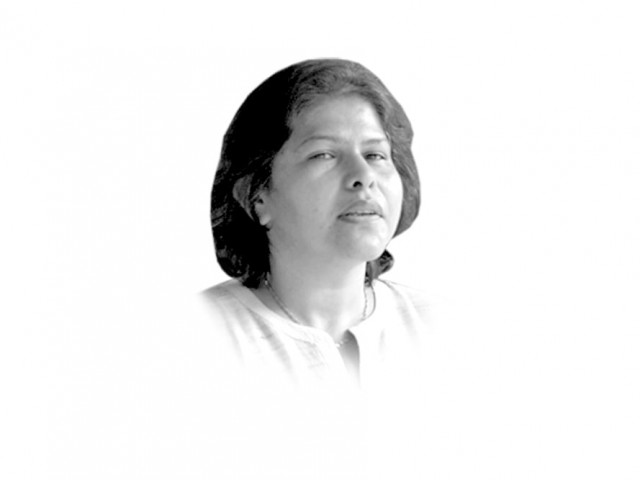What weakens the military?
There are so many channels of communication that it is difficult to ‘gag’ news and analysis.

The problem caused by the expansion of information technology is what neither Pervez Musharraf nor the present ISI/ISPR seem to get. There are so many channels of communication that it is difficult to ‘gag’ news and analysis. For instance, had The New York Times not gone to a retired military chap-turned analyst, the newspaper would have figured out the flaw of its story regarding General Ashfaq Parvez Kayani struggling for his job. Controlling information and its interpretation is what sustains the military’s sense of power.
It is essential to realise that the army is not being weakened by random commentators but by the nature of its politicisation. It is a deeply political institution that many refer to as the biggest political party in the country. Surely, today’s military is different from that of the 1950s. This one has multiple vertical and horizontal fault lines. There is differences of opinion on whether Kayani should have received a three-year extension. However, it still has immense capacity for the top leadership to shed some major differences for common benefits. So then why get a retired brigadier to spread the story on pressures on Kayani? The general must have been the happiest reading the story that presented him as the only liberal guy in the military who was fending for American interests and was thus in trouble vis-à-vis the more conservative thinking officers. Now that there are stories of a brigadier and a major sympathetic to Hizbut Tahrir, the Americans may have greater reason to believe that the Kayani team is the liberal one. Therefore, the Washington- Islamabad relationship will remain intact, though troublesome. The heightened xenophobia may even help the relationship.
However, this is a story of over four decades. Successive civil and military leaderships in Pakistan have marketed the story of being the only dependable friends the US can have. Enticing the US and keeping a relationship is as old a plan as Pakistan itself. In fact, the founding father, as it appears from some of his last interviews, saw Pakistan’s strategic location as critical for reaping resources from the western world. Pakistan was part of the new world that got created due to the end of World War II politics which was centered around the US – USSR rivalry. The paradigm has continued.
But referring to the military, there is no truth in the speculative story of Kayani being pushed out. This is not to say that the army does not push out its top leaders. It did so in the case of Ayub Khan, Yahya Khan, Ziaul Haq and Pervez Musharraf. It is perhaps The New York Times’ fascination with the current Middle East which made it suggest the possibility of a colonel’s coup which is not likely in Pakistan. This is not to suggest that Kayani will not honour the feelings of his fellow generals. In case he crosses a line, there will be a handful of three-star generals that could checkmate him and push him out. Once the handful gang up, others follow.
In case the military still holds civilian commentators responsible for its weakening, it could employ various methods such as muffling voices through extra-judicial and now judicial means. The larger risk, however, will be the greater divide between the military and civil society. As long as the GHQ can avoid following the Latin and South American military model, it can save itself politically.
Published in The Express Tribune, June 26th, 2011.














COMMENTS
Comments are moderated and generally will be posted if they are on-topic and not abusive.
For more information, please see our Comments FAQ